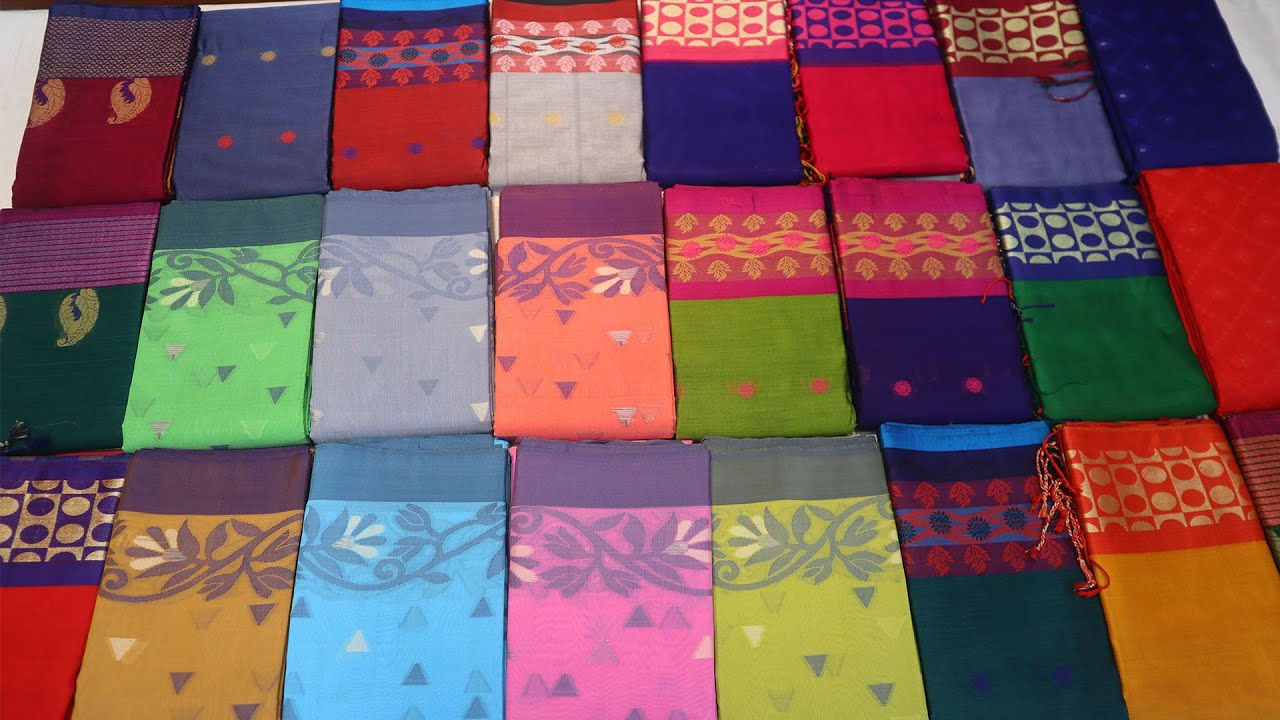News Flash

By Mohiuddin Sumon
TANGAIL, Nov 15, 2025 (BSS) - Tangail’s traditional hand woven sarees are now gaining global appreciation for their comfort, craftsmanship and artistic works.
Whether bought for personal use or as gifts, Tangail sarees remain an unmatched choice across Bangladesh and beyond.
Tangail’s sarees, known for their unique hand woven techniques, designs, and motifs, have become an international symbol of the district’s creativity and craftsmanship.
Tangail’s weaving tradition dates back to the late 19th century, established by Basak weavers who migrated from Dhaka and Dhamrai. Renowned artisans such as Anand Mohan Basak of Bajitpur, Sitanath Basak, Nil Kamal Basak of Chandi village, and Raghunath Basak of Pathrail have been pivotal in shaping the industry’s identity.
Weavers said that creating a Tangail saree requires both technical skill and artistic sensibility. Without traditional knowledge and dedication, real Tangail sarees cannot be made, they said, emphasizing that the craft has been preserved in Tangail for generations.
Pathrail, Chandi, Bajitpur and Putiajani remain the main weaving hubs, producing popular varieties such as cotton jamdani, soft silk, dhanshiri, baluchuri, gas silk, gold katan, dotari, chosha and silk sarees. Visitors to Pathrail can still hear the rhythmic clatter of looms throughout the day and night.
Around 10,000 weavers are currently involved in Tangail’s saree-making industry. Many operate looms inside their homes, often five to ten per household. Depending on the complexity of the design, weavers may take from one week to six months to complete a single saree.
Despite the global demand, weavers said their incomes have declined. Earlier, they earned Taka 700–800 per saree; now it has fallen to Taka 600–700.
Weaver Anwar Hossain shared, “I used to make three sarees a week. Now I make four, but wages remain low. Rice harvesters earn Taka 800–1,000 a day. If our wages increased, we could live better.”
Another weaver, Narayan Chandra, who has been in the profession for 23 years, said he earns Taka 600 per saree and produces five a week. “It has become difficult to run a family. The weaving villages aren’t as bustling as before, yet we continue the craft of our forefathers.”
Saree traders said the cost of production has increased from Taka 500 to over Taka 600 per saree, but selling prices have not risen proportionately. Raw material costs have surged, causing a downturn in domestic business.
Currently, Tangail sarees sell for Taka 500 to 20,000 depending on type and craftsmanship. Handloom sarees cost more, while power loom versions are cheaper.
Despite domestic challenges, Tangail sarees are highly sought after in Europe, the USA. Japan, Saudi Arabia and various Indian states.
Saree designer and prominent trader Neel Kamal Basak said, “We are introducing innovative designs to preserve tradition. If we get proper government support, Tangail sarees could bring significant foreign currency to Bangladesh.”
According to Raghunath Basak, president of the Tangail District Saree Traders Association, Tangail’s annual saree business typically amounts to around Taka 200 crore. But in recent years, production and sales have dropped due to capital shortages, lack of modern equipment, skill gaps, design challenges and insufficient marketing.
During festive seasons—Eid, Durga Puja and Pahela Baishakh—sales peak, particularly for silk, jamdani, soft silk, dotari, resham, and tissue silk sarees, priced between Taka 2,500 and Taka 16,500.
Deputy Commissioner Sharifa Haque confirmed that the district administration is actively working to promote Tangail sarees. Loom machines have been installed in Tangail District Jail to train inmates so they can secure post-release employment in the weaving sector.
“We hope Tangail’s traditional woven sarees will proudly establish themselves in the world market and survive with honor,” she said.
Despite the challenges, the artistry and heritage of Tangail’s woven sarees continue to flourish—sustained by generations of dedicated craftsmen who preserve one of Bangladesh’s most treasured cottage industries.